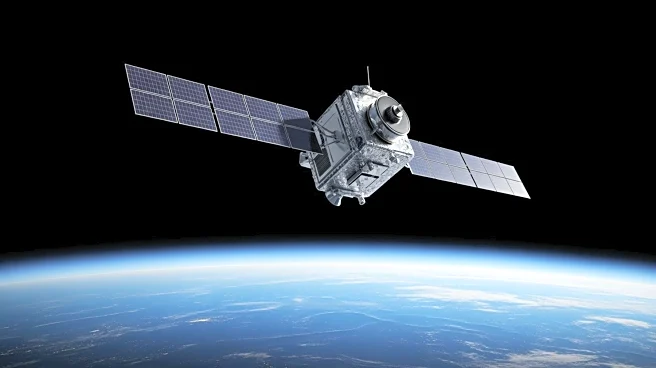What's Happening?
NASA, in collaboration with the European Space Agency (ESA), is set to launch the Sentinel-6B satellite, an ocean-tracking satellite designed to monitor sea levels across more than 90% of Earth's oceans. The satellite is scheduled to launch from Vandenberg
Space Force Base in California aboard a SpaceX Falcon 9 rocket. Sentinel-6B will continue the data record initiated by its twin satellite, Sentinel-6 Michael Freilich, which was launched in November 2020. The mission aims to provide critical data for improving public safety, city planning, and protecting coastal infrastructure. The satellite will orbit Earth every 112 minutes, collecting sea level and atmospheric data to refine models that support various applications, including the safe re-entry of Artemis astronauts.
Why It's Important?
The launch of Sentinel-6B is significant as it continues a 30-year record of sea-level measurements, crucial for understanding climate change impacts and supporting storm forecasting. The data collected will aid in securing coastal infrastructure and optimizing commercial activities such as shipping. The collaboration between NASA and ESA highlights international efforts to address global environmental challenges. The satellite's observations will contribute to a comprehensive understanding of local and global sea surface heights, which is vital for climate research and policy-making.
What's Next?
Following the launch, Sentinel-6B will undergo a series of operations to prepare for its science mission. It will fly closely behind its twin satellite, Sentinel-6 Michael Freilich, for data cross-calibration. Once calibrated, Sentinel-6B will take over primary sea level measurement duties, while its twin will be used for mapping seafloor features. The mission will provide valuable data for researchers and policymakers, supporting efforts to mitigate climate change impacts and enhance coastal resilience.
Beyond the Headlines
The Sentinel-6B mission represents a significant step in international cooperation for environmental monitoring. It underscores the importance of shared scientific endeavors in addressing global challenges such as climate change. The data collected will not only support immediate applications but also contribute to long-term climate models and strategies for sustainable development.
















